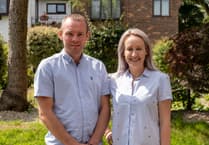More than five billion mobile phones will be thrown away this year, according to the international waste electrical and electronic equipment forum.
It highlights the growing problem of e-waste amidst people across the world calling for more to be done to combat climate change and plastic waste.
The Isle of Man is a UNESCO Biosphere and has a number of initiatives in place to protect the environment and stop the mounting of waste.
But one reader told the Isle of Man Examiner they believe that Manx Telecom is ‘actively encouraging’ its customers to throw away working mobile phones and replace them with newer models.
After two years having a phone and contract with MT, they noticed their contract had risen by £6.
They said: ‘It’s simply because after the two-year contract has expired they put you onto what they call a SIM-only contract. It’s the same amount of minutes and same amount of data, the only difference is it costs £6 a month more unless I go and buy another phone from them.
‘It seems bizarre if you look at how much waste these billions of phones that are thrown away every year cause.
‘And there’s not always something wrong with the phone, people have just chosen to upgrade.’
The reader added that it comes across as ‘very contradictory’, saying: ‘Obviously we’re all trying to cut back and save money because of prices going through the roof at the moment and at the same time we’re trying to analyse the things we’re doing and manage what impact they’re having on our environment.
‘It started off with me thinking I have exactly the same service as I had before and yet I now have to pay extra for it for no reason whatsoever. But it’s because I don’t want to buy a new phone.
‘It’s a two-year-old phone, so there’s no need for me to upgrade it. This shouldn’t be encouraged.’
Chair of the Climate Change Transformation Board Daphne Caine said that the Climate Change Plan and the Economic Strategy acknowledge the need to transition to a more sustainable economic model and the plan commits to a circular economy strategy being developed.
‘A circular economy is one that places a high value on resources and, to preserve that value, minimises unnecessary consumption and maximises use, re-use and repair,’ Mrs Caine said.
‘By extending the life of the products and resources we use we can reduce waste and its harmful environmental effects – as well as getting maximum economic value from the things we purchase.
‘Some countries are already looking at measures to support these principles, such as ‘right to repair’ legislation being proposed in the US and EU.’
She added that one of the strongest factors that can affect business practices is customer preference and encouraged people with concerns to ‘make their feelings known to the businesses in question’.
Manx Telecom said in response: ‘Manx Telecom recognises the important global issue of discarded or non-recycled mobile handsets and is committed to delivering initiatives that will help to address this on the island in 2023.
‘A mobile tariff discount is applied against our standard rates as a reward for customers who also purchase a handset at the same time as the tariff.’
Meanwhile, the island’s other telecommunication service, Sure, recommends any old phones be ‘reused, resold or recycled’.
Mike Fawkner-Corbett, head of consumer at Sure, said: ‘If a Sure customer has taken out a contract with us and opted for a handset then the price of the contract will automatically reduce at the end of the 24-month period. We treat customers fairly, so don’t continue to charge them for handsets that they have already paid off.
‘We are transparent about the costs of the plan and the handset, so our current Pay Monthly plans cost the same for customers whether they choose to take a phone or not.
‘If customers are replacing their phone, we highly recommend the old phone being reused, resold or recycled. Customers can return old phones to Sure for recycling.
‘Sure has prioritised its commitment to promoting sustainability and environmental care by enrolling in ESI Monitor’s Environmental Business Operations Framework to track, analyse, and mitigate its emissions.’




